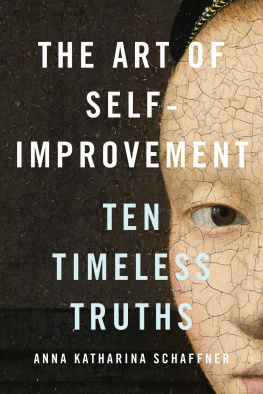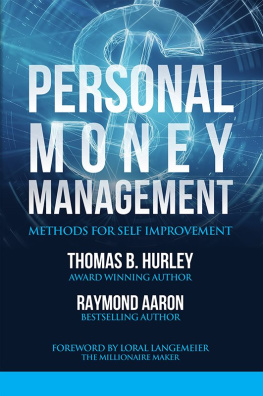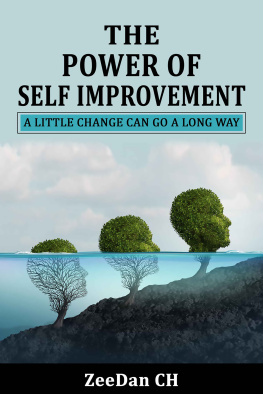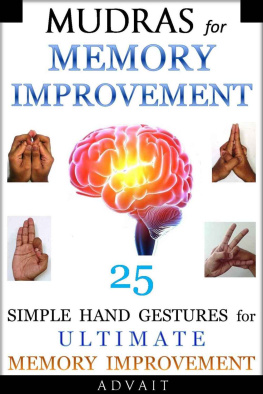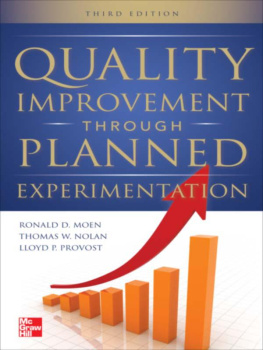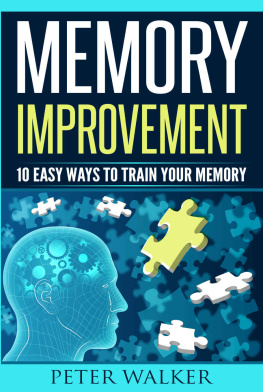THE ART OF
SELF-IMPROVEMENT

Published with assistance from the foundation established in memory of James Wesley Cooper of the Class of 1865, Yale College.
Copyright 2021 by Yale University.
All rights reserved.
This book may not be reproduced, in whole or in part, including illustrations, in any form (beyond that copying permitted by Sections 107 and 108 of the U.S. Copyright Law and except by reviewers for the public press), without written permission from the publishers.
Yale University Press books may be purchased in quantity for educational, business, or promotional use. For information, please e-mail (U.K. office).
Set in Janson type by IDS Infotech Ltd.
Printed in the United States of America.
Library of Congress Control Number: 2021931301
ISBN 978-0-300-24771-8 (hardcover : alk. paper)
A catalogue record for this book is available from the British Library.
This paper meets the requirements of ANSI/NISO Z39.48-1992 (Permanence of Paper).
10 9 8 7 6 5 4 3 2 1
It seems to me that we are unfinished business. There is always scope to grow, not just intellectually but morally, epistemically and spiritually.
JONATHAN ROWSON , The Moves That Matter: A Chess Grandmaster on the Game of Life
Contents
Preface
I N ONE OF MY most enduring nightmares, I stare into the mirror only to find that, overnight, my hair has turned white. My eyes are foggy and wont stay open. My skin is old and wrinkled, the consistency of parchment. I touch my face with skeleton fingers and understand that I am dying of old age. My response is one of dread. But it is not death as such that I fear. Rather, it is the realization of a terrible failure on my part. No, this cannot be, I am not done yet, I think in a panicI have made no progress. I am overwhelmed by the terrifying realization that I have wasted my life agonizing over my various insecurities. The image I see in that dream-mirror is of an old woman with the psychological hang-ups of a teenager. Self-centered, but ineffectively so. It is the stuff of which true horror is made. For my dream-self has sinned against one of my most cherished beliefs: that it is possible to improve ourselves, and that self-improvement is our most important existential task.
We tend to write about the things that matter most to us, the things we wish to learn more about. I have always wanted to improve, to understand more deeply what self-improvement entails. A highly self-conscious introvert, I have battled with a range of frustrating limitations all my life. Constitutionally incapable of small talk, I often feel awkward in social situations, or come across as aloof. I find it challenging to connect with others. I can be preoccupied with my own debilitating inner voice; relentlessly self-critical, it drowns out many of the good things in my life. Because my energy is expended internally, I do not have nearly as much to give to others as I would like. My resources are consumed in the endless battle between that critical inner voice and the wiser parts of my personality. I frequently feel as though I am functioning at a level far below my natural potential.
For decades, I have been searching for a way to direct my energy outward, once and for all, so that I can live a more other- and more purpose-oriented life. As I see it, that is the point of all worthwhile self-improvement: to free up our energies so that we can direct them toward other people and toward creative projects. Fundamentally, self-improvement is a desire to learn how we can best develop our personal faculties and our moral qualities.
I have tried out my fair share of self-help regimes and read hundreds of books on the subject. My reading has always been driven by hopethe hope that the next book really will hold the key, the long-lost formula for a sustainable better life. Self-improvement promises nothing less than salvation, of a secular kind. Crucially, self-improvement is intimately linked to the transcendence of the self. While that may sound paradoxical, I strongly believe that the truly improved self shows itself in its interactions with others. It is less egoistical, humbler, more generous. It is not constantly preoccupied with its own anxieties, perceived shortcomings, and disappointments.
Unfortunately, I have not found any single means of self-improvement, a strategy guaranteed to work for everyone. Indeed, I have come to the conclusion that it does not exist. I have, however, discovered multiple strategies for self-improvement that have survived the test of time. In this book, I have brought together what I consider to be the ten most valuable and enduring ideas about self-improvement. These ideas come from different periods and cultures, and they have undergone variation across the ages. I encountered them while I was working through the vast literature of self-improvement, the origins of which lie thousands of years in the past. One of the things those ideas teach us is that there can be no simple revolution of the self. We cannot improve ourselves once and for all. Rather, self-improvement is an ongoing process, and one that has to be pursued throughout our lives.
While self-improvement is a deeply personal topic for me, it is also a topic with wide-ranging philosophical, psychological, and social
There is also a significant social dimension to self-improvement. Imagine a society that did not believe in the possibility that we can better ourselves. What place would there be for teaching and learning, for mentoring, for development of any kind? Would not such a society simply abandon or punish those experiencing difficulties and those who have fallen on hard times, rather than helping them to help themselves? Would it not ultimately be the least humane of societies? Arguably the most persuasive argument against the death penalty is precisely that it rules out the very possibility of self-improvement. To sentence someone to death is to assume that they cannot transcend the self that committed the crime for which they are being punished. I, for one, would not wish to live in a world that rejected the idea that change for the better is possible, and I do not believe that anyone else would either, if they really thought about it.
On the surface, Anglo-American cultures enthusiastically embrace the notion of the improvable selfa fact to which our current multibillion-dollar personal development industry attests. And yet there are cracks and contradictions in this construct, and many questions to which we do not have answers: Where exactly does our agency to shape ourselves begin and end? Which parts of us are innate, determined by our genes, and which are learned behavior, the result, in part, of upbringing and specific socioeconomic circumstances? What can we realistically hope to change about ourselves, and what is destined to remain fixed, no matter how hard we rattle the cage?
Crucially, our beliefs about our fundamental improvability (or lack thereof) translate into our politics. Are all self-improvers in principle created equal, or is self-improvement much harder for some than it is for others? Do we hold those of us who fail to improve ourselves personally responsible, or do we take into consideration our individually unique circumstances? Do we assign personal blame to those who struggle with their weight, with social anxiety, with impulse control, with substance abuse, with relationship problems, or who find themselves in financial hardship? For, to be sure, with the theoretical possibility of self-improvement comes practical responsibility.
Some theorists of self-improvement believe in limitless agency, with which comes a high degree of personal accountability, while at the other end of the spectrum the determinists focus on dependency and helplessness. Where we position ourselves on that spectrum reflects our fundamental ideas about what it means to be human. Our views on self-improvement ultimately tell us not only who we are, but how we think about others. Nothing, to my mind, could be more important than that.
Next page
